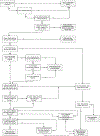Ethical considerations for addressing distorted beliefs in psychotherapy
- PMID: 31486661
- PMCID: PMC6901722
- DOI: 10.1037/pst0000252
Ethical considerations for addressing distorted beliefs in psychotherapy
Abstract
With rising rates of misinformation, psychotherapists are likely to encounter clients with distorted beliefs that are scientifically unsound. In situations where these beliefs are harmful (e.g., vaccination refusal, misunderstanding of sexual consent), psychotherapists may face an ethical dilemma regarding how to proceed with psychotherapy. This is especially true if such beliefs are impairing treatment progress or resulting in safety concerns for the client or society. Questions about whether and how the psychotherapist should address these distorted beliefs are therefore likely to arise. In such cases, psychotherapists are tasked with respecting the client's autonomy, while simultaneously being of maximum benefit to the client and to society at large. Not all distorted beliefs warrant therapeutic intervention, but this judgment requires careful consideration. The current article addresses the relevant ethical considerations for navigating and addressing distorted beliefs in psychotherapy. A vignette is offered, and relevant sections of the American Psychological Association's Ethics Code are discussed, both as they pertain to this scenario and as they apply more generally to the practice of psychotherapy. The article concludes with questions for psychotherapists to consider and recommendations for how to proceed when confronted with harmful distorted beliefs. (PsycINFO Database Record (c) 2019 APA, all rights reserved).
Figures
Similar articles
-
Psychotherapists in danger: The ethics of responding to client threats, stalking, and harassment.Psychotherapy (Chic). 2019 Dec;56(4):441-448. doi: 10.1037/pst0000248. Epub 2019 Aug 15. Psychotherapy (Chic). 2019. PMID: 31414855 Review.
-
Psychotherapy in the #MeToo era: Ethical issues.Psychotherapy (Chic). 2019 Dec;56(4):483-490. doi: 10.1037/pst0000262. Epub 2019 Oct 28. Psychotherapy (Chic). 2019. PMID: 31657593 Review.
-
Psychotherapy termination: clinical and ethical responsibilities.J Clin Psychol. 2008 May;64(5):653-65. doi: 10.1002/jclp.20478. J Clin Psychol. 2008. PMID: 18415948
-
The ethical practice of psychotherapy: Clearly within our reach.Psychotherapy (Chic). 2019 Dec;56(4):431-440. doi: 10.1037/pst0000272. Psychotherapy (Chic). 2019. PMID: 31815506
-
Ethical implications of routine outcomes monitoring for patients, psychotherapists, and mental health care systems.Psychotherapy (Chic). 2019 Dec;56(4):459-469. doi: 10.1037/pst0000246. Epub 2019 Oct 3. Psychotherapy (Chic). 2019. PMID: 31580139 Review.
Cited by
-
Ethical Considerations for Treating the Old Order Amish.Ethics Behav. 2021;31(6):419-432. doi: 10.1080/10508422.2020.1805614. Epub 2020 Aug 13. Ethics Behav. 2021. PMID: 34483634 Free PMC article.
-
Clinical Psychology in the Post-Dobbs Era: Navigating Clinical Practice, Research, and Advocacy in a Changing Sexual- and Reproductive-Health Landscape.Clin Psychol Sci. 2025 Jun 27:10.1177/21677026251346150. doi: 10.1177/21677026251346150. Online ahead of print. Clin Psychol Sci. 2025. PMID: 40837878 Free PMC article.
References
-
- American Psychological Association. (2017). Ethical principles of psychologists and code of conduct (2002, Amended 2010 and 2017). Retrieved from https://www.apa.org/ethics/code/ - PubMed
-
- Beauchamp TL, & Childress JF (2012). Principles of biomedical ethics (7th ed.). New York, NY: Oxford University Press.
-
- Boyd KK (1996). Power imbalances and psychotherapy. Focus, 11(9), 1. - PubMed


